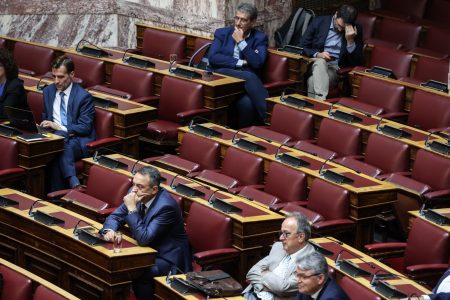The Constitution has always been a competitive space for Greece politicians, a special court where ideas and political systems competed against each other from time to time.
In the conflicts that occurred shortly after the War of Independence of 1821, we saw the domination of the democrats and liberals, left and right, royalists and the far right – all of the political forces (including the dictatorial groups, like the Colonels in 1967) had the opportunity to experiment by imposing their own Constitution.
Even the Constitution of 1975, which was supposed to come as a result of the bitter experience left by the junta that had just collapsed, was unable to unite the Greek people. Having won 220 of the 300 seats in Parliament, Konstantinos Karamanlis’ New Democracy enforced the voting of a Constitution which instead of being projected as an expression of the great democratic majority, it became a battlefield of parliamentary conflicts.
The centrists accused the dominant New Democracy of voting for a Constitution that was tailored for K. Karamanlis, to facilitate his transition from Prime Minister to the Presidency and to his ensuing domination of the political scene. And so, the Constitution of 1975 was approved in Parliament and was implemented with great success, since K. Karamanlis never abused the powers granted to him by the State’s road map.
Everything changed though when PASOK came to power in 1981 and decided to introduce its “own” Constitution which greatly limited the Presidential powers and increased those of the Prime Minister.
Fortunately the country did not need to resort to the Constitution to deal with any serious political crisis. Therefore, from a Presidential Democracy (as the constitutionalists call it) informally turned into a Prime Ministerial Democracy. The plans of developing the Presidential Democracy (where the President has increased authorities) similarly to say the French model, never left the drawing board. The Constitutional reviews in the post-dictatorship era were never implemented. The Constitutional changes that occurred without the change of essential Constitutional provisions resulted in marginal improvements, when they did not exacerbate the administration of the country.
Now we find ourselves before the start of a new Constitutional review. The changes will be pointless and dangerous should the country’s political forces not agree that the Constitution is not some sort of playground.
Stavros P. Psycharis
– Originally published in the Sunday print edition





